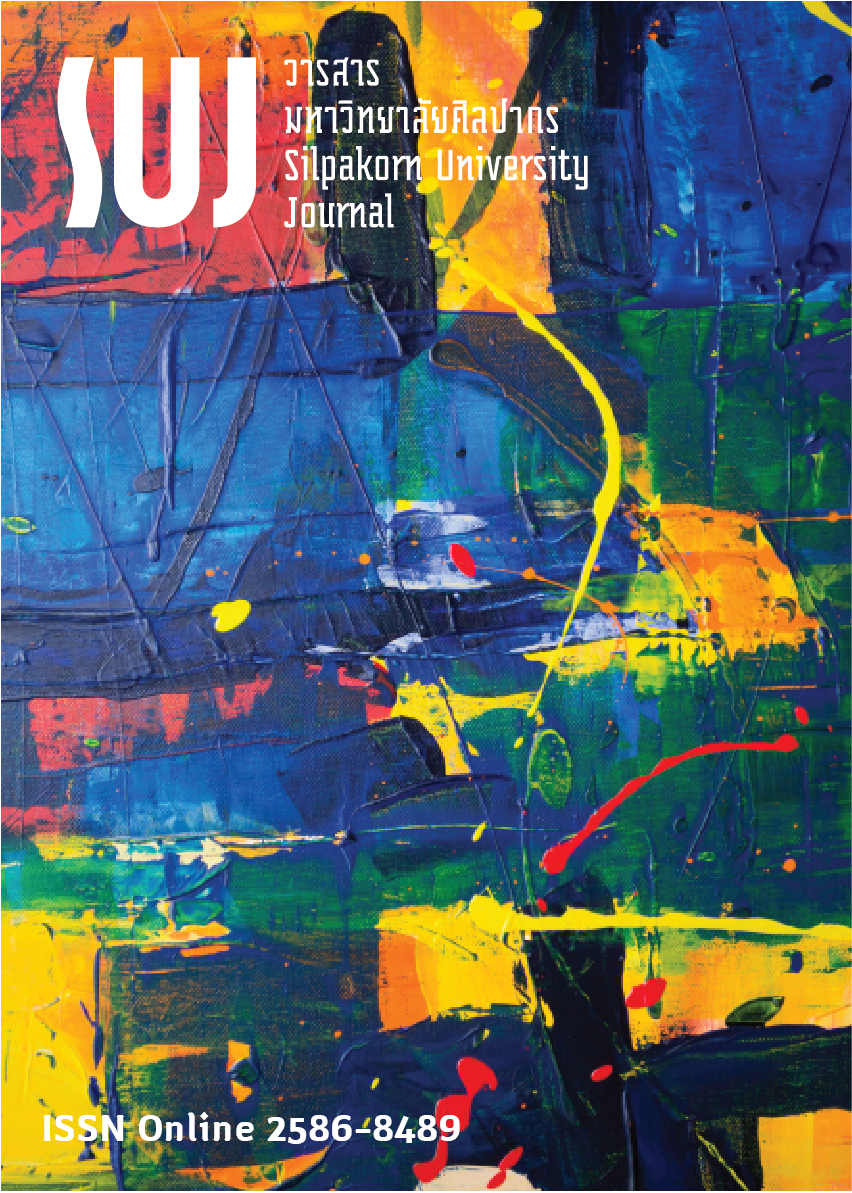การสะท้อนผลชั้นเรียนของครูในชุมชนการเรียนรู้เชิงวิชาชีพ ที่ใช้นวัตกรรมการศึกษาชั้นเรียนและวิธีการแบบเปิด (Teachers’ classroom reflection in professional learning community using lesson study and open approach)
Main Article Content
Abstract
งานวิจัยนี้มีวัตถุประสงค์เพื่อศึกษาลักษณะการสะท้อนผลชั้นเรียนในชุมชนการเรียนรู้เชิงวิชาชีพที่ใช้นวัตกรรมการศึกษาชั้นเรียนและวิธีการแบบเปิด กลุ่มเป้าหมายคือทีมการศึกษาชั้นเรียน จำนวน 6 คน ได้แก่ ครูผู้สอนวิชาคณิตศาสตร์ชั้นประถมศึกษาปีที่ 1 ถึง 6 ภาคเรียนที่ 2 ปีการศึกษา 2560 โรงเรียนต้นกล้า จังหวัดเชียงใหม่ ผู้วิจัยเก็บรวบรวมข้อมูลโดยการบันทึกวีดิทัศน์ บันทึกเสียง และบันทึกภาพนิ่ง ผ่านการสนทนากลุ่ม ในขั้นตอนของการสะท้อนผลชั้นเรียนตามแนวทางศึกษาชั้นเรียนและวิธีการแบบเปิด วิเคราะห์ข้อมูลโดยการวิเคราะห์วิดีทัศน์และนำเสนอข้อมูลด้วยการพรรณนาวิเคราะห์ ผลการวิจัยพบวิธีการสะท้อนผลชั้นเรียนมี 3 ลักษณะคือ 1) การสะท้อนผลเชิงพรรณนา : ครูอธิบายเหตุการณ์ที่เกิดขึ้นในชั้นเรียน ข้อมูลเชิงกายภาพของชั้นเรียน และพฤติกรรมของนักเรียนที่ไม่เกี่ยวข้องกับแนวคิดทางคณิตศาสตร์หรือจุดประสงค์ของบทเรียน 2) การสะท้อนผลเชิงวิเคราะห์ : ครูวิเคราะห์วิธีการแก้ปัญหาและแนวคิดทางคณิตศาสตร์ที่ผูกติดกับจุดประสงค์ของบทเรียนโดยมีผลมาจากสถานการณ์ปัญหา คำสั่งของกิจกรรม การคาดการณ์แนวคิดทางคณิตศาสตร์ และการอภิปรายในชั้นเรียน รวมถึงการเสนอแนะวิธีการเพื่อพัฒนาปรับปรุงชั้นเรียนในครั้งต่อไป และ 3) การสะท้อนผลเชิงวิพากษ์: ผู้เชี่ยวชาญสะท้อนชั้นเรียน โดยเชื่อมโยงทฤษฎีเชิงการสอนเข้ากับงานภาคปฏิบัติ โดยอธิบายผ่านการคิดทางคณิตศาสตร์ของนักเรียนซึ่งสามารถบ่งชี้ตำแหน่งของการยกระดับชั้นเรียน
The purpose of this study was to study the characteristics of teachers’ classroom reflection in a professional learning community using lesson study and open approach. The target groups consisted of six elementary math teachers from Tonkla School, Chiang Mai province, in the second semester of the academic year 2017. The data were collected by video-audio tape recordings and photographs through a reflection in the cycle of lesson study and open approach. The analysis method was protocol analysis. The data were presented in descriptive texts. The results showed three characteristics of teachers’ classroom reflection as follows: 1) descriptive reflection: teachers described the classrooms’ events, physical data of the classrooms, and students’ behaviors which were not related to students’ mathematical ideas or objectives. 2) Analytical reflection: teachers analyzed students’ problem-solving strategies and mathematical ideas embedded in objectives as the result of the problem situation, tasks, students’ anticipations and whole-class discussion, and also gave suggestions for further improving the teaching and learning process. 3) Critical reflection: an expert reflected classroom with bridging theory of teaching to classroom practices through students’ mathematical thinking that indicates how to enhance classroom quality effectively.
Downloads
Article Details
References
DuFour, R. (2004). What is a Professional learning community?. Schools as Learning Communities, 8(61): 6-11.
Fernadez, C. (2002). Learning from Japanese approaches to professional development : The case of lesson study. Journal of Teacher Education, 53(5): 393-405.
Fernandez, C., Cannon. & Chokshi, S. (2003). A US-Japan lesson study collaboration reveals criticallenses for examining practice. Teaching and Teacher Education, 19: 171-185.
Gutierez, S. B. (2015). Teachers’reflective practice in lesson study: A tool improving instructional practice. Alberta Journal of Educational Research, 61(3): 314-328.
Inprasitha, Mitree. (2011). One feature of adaptive lesson study in Thailand: designing a learning unit. Journal of Science and Mathematics Education in Southeast Asia, 34(1): 47-66.
Lim, C. S., L. K., Kor. & H. M. Chia. (2016). Revitalising mathematics classroom teaching through lesson study (LS): a Malaysian case study. ZDM Mathematics Education, 48(4): 485-499.
Ross, J. A. & Bruce, C. (2007). Professional development effects on teacher efficacy: Results of ramdomised field trials. The Journal of Educational Research, 10(1): 50-60.
Saengpun, Jensamut. (2013). Classroom discourse and its role in students’ development of semiotic activity in mathematics classroom taught by open approach. International Review of Social Sciences and Humanities, 5(1): 192-200.
Van Driel, J. H. & Berry, A. (2012). Teacher professional development focusing on pedagogical content knowledge. Educational Researcher, 41: 26-28.


